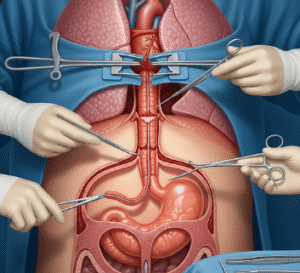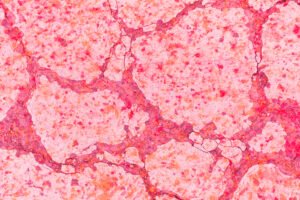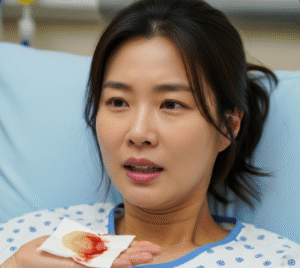➤ Overview
A stiff neck is a condition characterized by pain, tightness, or reduced range of motion in the neck muscles, often making it difficult to turn or bend the head. This common complaint can result from muscle strain, poor posture, injuries, or underlying medical conditions.
In South Korea, stiff necks are evaluated by orthopedic specialists, neurologists, physiotherapists, and rehabilitation physicians. Early assessment ensures proper management, pain relief, and prevention of chronic neck problems or complications.
➤ Key Facts
→ A stiff neck can affect one or both sides of the neck, sometimes radiating to shoulders or upper back.
→ Commonly caused by muscle strain, tension, poor sleeping posture, or prolonged computer use.
→ In Korea, physical therapy clinics and hospitals offer advanced treatments including manual therapy, imaging, and rehabilitation programs.
→ Persistent stiff neck may indicate underlying conditions such as cervical spondylosis, meningitis, or spinal injuries.
→ Symptoms can interfere with daily activities, sleep, and work performance.
→ Early intervention helps prevent chronic pain, muscle spasms, or nerve complications.
→ Management includes pain relief, physical therapy, and lifestyle adjustments.
➤ What is Stiff Neck?
A stiff neck is characterized by muscle tightness, discomfort, and restricted movement, often accompanied by localized pain.
→ Acute stiffness – Sudden onset, usually due to muscle strain or poor posture.
→ Chronic stiffness – Persistent discomfort lasting weeks or months, often associated with degenerative changes or chronic tension.
→ Neurological involvement – Pain or stiffness may radiate to the arms, indicating nerve compression.
→ Postural strain – Common in office workers, students, or individuals using mobile devices for prolonged periods.
Korean specialists evaluate neck stiffness with clinical examination, range-of-motion tests, and imaging when needed to identify underlying causes.
➤ What Symptoms are Related to Stiff Neck?
Stiff neck often occurs with related symptoms, which help guide diagnosis and treatment:
→ Neck pain or soreness – Localized or spreading to shoulders or upper back.
→ Reduced range of motion – Difficulty turning or bending the neck.
→ Muscle spasms or tightness in the neck and shoulder region.
→ Headache, often at the base of the skull.
→ Tenderness along the cervical muscles.
→ Radiating pain or numbness in arms if nerve compression is involved.
→ Fatigue or muscle weakness due to chronic tension.
→ Postural abnormalities – Forward head posture or slouching from prolonged strain.
➤ What Causes / Possible Causes?
Stiff neck arises from various musculoskeletal, neurological, and systemic factors:
→ Muscle strain – Overuse, sudden movements, or heavy lifting.
→ Poor posture – Slouching, prolonged computer or smartphone use.
→ Cervical spondylosis – Age-related degenerative changes in cervical spine.
→ Injuries or trauma – Whiplash from car accidents or falls.
→ Stress and tension – Leading to tight neck and shoulder muscles.
→ Sleeping position or pillow issues – Incorrect support causing overnight stiffness.
→ Infections – Meningitis or upper respiratory infections causing neck rigidity.
→ Underlying medical conditions – Rheumatoid arthritis, herniated discs, or spinal stenosis.
➤ When Should I See My Doctor?
Medical attention is required if a stiff neck is severe, persistent, or associated with alarming symptoms:
→ Sudden onset of severe neck pain after trauma or accident.
→ Neck stiffness with fever, headache, or sensitivity to light, which may indicate meningitis.
→ Numbness, tingling, or weakness in the arms or hands.
→ Persistent neck pain lasting more than a few weeks despite rest and home care.
→ Pain radiating to shoulders or upper back, limiting daily activities.
→ Associated with swelling, redness, or unexplained lumps in the neck.
→ Any history of spinal injury or chronic neck conditions requiring evaluation.
➤ Care and Treatment
Management of a stiff neck focuses on pain relief, restoring mobility, and preventing recurrence:
→ Rest and posture correction – Avoid prolonged strain and maintain ergonomic posture.
→ Physical therapy – Stretching, strengthening, and mobility exercises.
→ Pain relief medications – NSAIDs, acetaminophen, or muscle relaxants.
→ Heat or cold therapy – Reduces muscle spasms and inflammation.
→ Massage therapy or manual therapy – Relieves muscle tension.
→ Ergonomic adjustments – Proper chair, desk, and pillow support.
→ Stress management techniques – Relaxation exercises, yoga, or meditation.
→ Medical interventions – In severe cases, corticosteroid injections or surgery for structural problems.
➤ Treatment Options in Korea
South Korea offers comprehensive management for stiff neck, integrating orthopedics, neurology, physical therapy, and rehabilitation:
Diagnosis in Korea
→ Clinical evaluation including range-of-motion tests, neurological exams, and posture analysis.
→ Imaging: X-ray, MRI, or CT scans to assess cervical spine and soft tissues.
→ Blood tests if infection or inflammatory conditions are suspected.
Medical Treatments in Korea
→ Prescription medications for pain relief and inflammation.
→ Muscle relaxants or anti-spasmodic therapy for severe stiffness.
→ Targeted interventions such as cervical traction, steroid injections, or nerve blocks for chronic cases.
Advanced Therapies in Korea
→ Physical therapy and rehabilitation programs for restoring mobility.
→ Manual therapy, acupuncture, or integrative treatments combining Western and Korean traditional medicine.
→ Ergonomic and lifestyle counseling to prevent recurrence and improve long-term neck health.
Rehabilitation & Support in Korea
→ Education on correct posture, stretching routines, and home exercises.
→ Follow-up to monitor improvement, adjust therapy, and prevent chronic stiffness.
→ Support for pain management, mobility enhancement, and quality of life in chronic cases.













